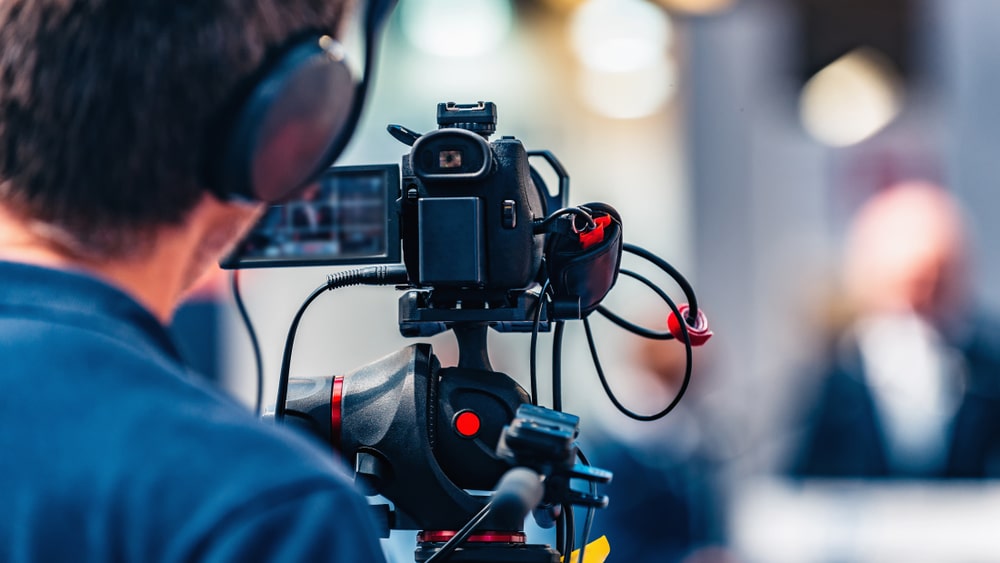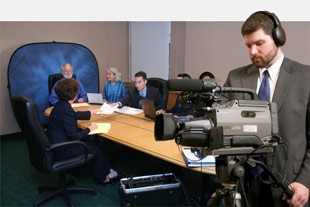The Function of Legal Videography in Depositions and Trials
Legal videography has actually arised as an important device in both depositions and trials, providing a multifaceted technique to recording witness statements. As lawful specialists progressively identify its value, it prompts a much deeper assessment of just how these aesthetic records can affect juror understandings and trial outcomes.
Importance of Legal Videography
Lawful videography plays a pivotal duty in the documentation and presentation of depositions and trials. This customized area combines technological abilities with legal expertise to develop a trustworthy document of process that can considerably affect instance results. The appearance of lawful videography improves the understanding of witness statement, allowing jurors and judges to observe not just the spoken words but also the demeanor, feelings, and body movement of the witnesses.

The relevance of legal videography extends past the courtroom; it additionally plays an essential function in maintaining proof for future reference, whether for allures or further lawful activity. Because of this, its integration into the legal procedure is essential for making certain a reasonable and exact depiction of the realities, ultimately adding to the quest of justice.

Process of Legal Videography
While catching the subtleties of depositions and trials, the process of lawful videography involves numerous vital steps that make sure high-grade, accurate recordings. Initially, a professional lawful videographer prepares by assessing the situation materials and comprehending the details requirements of the deposition or test. This prep work includes familiarizing themselves with the participants and the context, which helps in catching significant information.
On the day of the recording, the videographer sets up the necessary devices, which commonly includes high-def video cameras, microphones, and proper lights. Making sure ideal angles and sound quality is vital, as it straight influences the performance of the recording. The videographer interacts with attorneys and individuals to establish protocols, guaranteeing that everybody understands the recording process.
During the deposition or trial, the videographer meticulously records the proceedings, paying close attention to both verbal and non-verbal hints. legal videography. This consists of capturing the temperament and responses of witnesses and attorneys. After the session wraps up, the videographer may modify the video for clearness and conformity with lawful criteria, generating a final product that accurately shows the procedures for future reference and use in lawful contexts
Benefits in Depositions
The consolidation of videography in depositions offers countless advantages that improve the overall process of gathering proof. One primary benefit is the ability to catch witness testaments with aesthetic and auditory integrity, giving a much more precise representation of the witness's attitude, tone, and body movement. This multidimensional approach permits lawyers and juries to assess reputation a lot more successfully than traditional written transcripts alone.
Furthermore, videographed depositions act as an effective tool for maintaining testimony. Should a witness come to be inaccessible for trial, their videotaped deposition can be played in court, guaranteeing that their proof stays obtainable and pertinent. This aspect significantly minimizes the risk of shedding essential details that might affect instance results.
Additionally, making use of legal videography advertises far better preparation for lawyers. Evaluating video footage permits lawful groups to analyze and fine-tune their strategies, determining staminas and weak points in their instances. This preparatory advantage can cause even more engaging presentations in court.
Last but not least, videography boosts the general professionalism and trust of the deposition procedure, instilling confidence in clients pertaining to the thoroughness of their lawful depiction. By leveraging technology, attorneys can substantially enhance the performance of depositions.
Effect On Trials
In many trials, the integration of videography can dramatically affect the presentation of proof and the jury's assumption. Lawful videography catches witness statements and important proof in a vibrant format, permitting jurors to involve with the product on several levels. This visual element boosts the narration facet of a test, offering context and psychological resonance that traditional text-based evidence may lack.
Additionally, video recordings can function as effective tools for impeachment throughout interrogation. When disparities develop between a witness's prior declarations and their courtroom statement, video clip proof supplies an objective recommendation that can guide jurors' opinions. This immediacy and clarity can strengthen the credibility of a party's narrative while simultaneously weakening opposing disagreements.
Additionally, the use of videography can assist enhance complicated details, making it a lot more accessible to jurors that might battle to understand intricate details offered solely through verbal testament. By integrating visuals with acoustic information, legal videography can boost retention and understanding, inevitably affecting the court's decision-making procedure. Therefore, the impact of videography in trials expands beyond plain visual appeals; it plays a crucial duty in shaping the lawful landscape and outcomes.
Future Trends in Legal Videography
As we website here look towards the future of legal videography, numerous emerging patterns assure to improve its duty within the courtroom. One considerable pattern is the integration of expert system (AI) in video analysis and modifying - legal videography. AI can simplify the procedure of recognizing key moments in recorded depositions, enabling lawyers to swiftly access appropriate web content, thus boosting performance in instance preparation
Additionally, the rise of virtual truth (VIRTUAL REALITY) and augmented reality (AR) innovations is expected to change how jurors experience evidence. By immersing jurors in a substitute setting, these technologies can provide an extra extensive understanding of complicated situations, causing even more enlightened deliberations.

Moreover, the raising need for remote depositions, increased by the COVID-19 pandemic, will likely continue. Lawful videographers will require to adapt to new software and platforms to guarantee high-quality recordings in virtual settings.
Lastly, the expanding focus on information safety will require stricter methods for saving and sharing video clip evidence. As the legal landscape advances, lawful videographers should stay abreast of these fads to keep their significance and effectiveness in the judicial procedure.

Conclusion
In recap, lawful videography serves an important feature in the judicial procedure, enhancing the integrity of depositions and trials. As innovation proceeds to advance, lawful videography is poised to further find more info transform its function within the try this site lawful landscape.